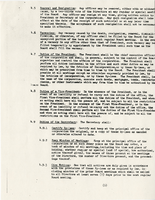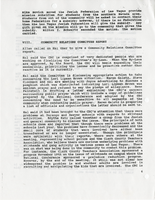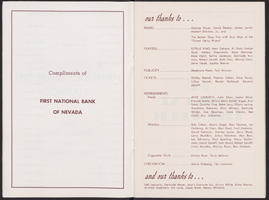Search the Special Collections and Archives Portal
Search Results
Donn Arden Photographs
Identifier
Abstract
The Donn Arden Photographs (approximately 1920-1989) contain photographs, negatives, and photographic slides of dancer and choreographer Donn Arden. The photographs primarily document Arden's life as a dancer and choreographer in Las Vegas, Nevada and in Paris, France, including performances at the Stardust Hotel, Desert Inn, and MGM Grand in Las Vegas and the Lido in Paris. The photographs also depict rehearsals, dancers, showgirls, Arden's friends and family, and performance locations.
Archival Collection
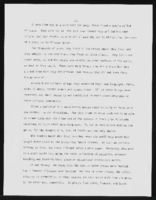
Untitled unpublished manuscript by Roosevelt Fitzgerald
Date
Archival Collection
Description
From the Roosevelt Fitzgerald Professional Papers (MS-01082) -- Unpublished manuscripts file. "Injustice Blacks Have Suffered…" ending with Naomi Long Madgett's poem "Midway."
Text
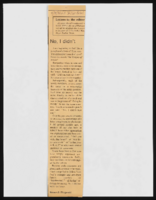
"The Reintegration of Las Vegas": paper by Roosevelt Fitzgerald
Date
Archival Collection
Description
From the Roosevelt Fitzgerald Professional Papers (MS-01082) -- Unpublished manuscripts file. Presented at the Western Social Science Association, 31st Annual Conference, Albuquerque, New Mexico.
Text

Stella Kalaoram oral history interview: transcript
Date
Archival Collection
Description
Oral history interview with Stella Kalaoram conducted by Kristel Peralta and Cecilia Winchell on August 2, 2021 for Reflections: The Las Vegas Asian American and Pacific Islander Oral History Project. Stella Kalaoram discusses her childhood in Singapore, the occupations and ethnic diversity of her family, and the four languages she speaks: English, Mandarin, Malay, and Tamil. She shares her immigration journey to the United States with her husband, from Singapore to San Bernardino, California in 1990, and their move to Las Vegas in 2000. Stella also shares her employment experiences as a dental assistant, a housekeeper for the Cosmopolitan Hotel and Casino, and as a shop steward for the Culinary Workers Union. She also talks about contracting COVID-19 and her hospital experience, her family's differing religious faiths, and her translation work to empower the Asian-American community. Subjects discussed include: insurance benefits; Volunteer Organizer (VO); mask mandates; vaccine hesitancy; food traditions; language barriers; Baba and Nyonya cultures.
Text

Transcript of interview with Perle Garrett by Marilyn Swanson, March 2, 1975
Date
Archival Collection
Description
On March 2, 1975, Marilyn Swanson interviewed her neighbor Perle Garrett (born April 27, 1905 in Overbrook, Kansas) in her home in Boulder City, Nevada. This interview covers Boulder City during the 1930s, with special focus on the building of Boulder Dam. Mrs. Garrett relocated to Boulder City because her husband Theodore Garrett was one of the workers at the dam. She also discusses Six Companies houses, family life, the weather, churches in Las Vegas and recreational activities for local children. Her husband is also present during the interview.
Text

Meeting minutes for Consolidated Student Senate, University of Nevada, Las Vegas, October 09, 2000
Date
Archival Collection
Description
Text

